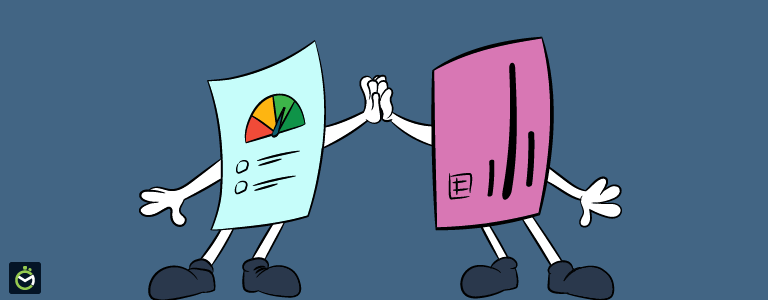Exhausting Credit Card Limit Affects Your Credit Score, So Does Not Use At All

Credit scores are an essential factor in getting your loan approved. Your credit score depends on many factors and one of them is the effective use of your credit limit. While exhausting your credit limit affects your credit score, not at all using or less use of your credit limit also impacts your credit score negatively.
What Is Credit Limit and Credit Overlimit?
The credit limit is the maximum amount you can spend using your credit card. Credit limits are set so that you don’t fall into a debt trap and repay the amount borrowed on time. The card issuer usually sets this credit limit at the time of issuing the card. It is based on multiple factors such as your income, credit score, and repayment history. But, your credit limit can also be upgraded periodically.
The credit overlimit is the scenario in which you use your credit card above the specified credit limit. Credit overlimit is a facility given to every cardholder. You can either annul the transaction that crosses the credit limit or continue the transaction overlimit. Certain terms and conditions are applicable to overlimit credit.
Exhausting Credit Limit Affects Credit Score
Using one or two credit cards will help you make big-ticket purchases or pay for emergencies. But, if you use too much credit and are not able to pay your bills on time, it will attract high-interest rate penalties. Accumulating bills and interest will force you to pay more, which will affect your credit score drastically. Also, at one point in time, you may not be able to pay your bills and will fall into a debt trap. Thus, exhausting your credit limit should be avoided.
Credit Utilization Ratio
The credit utilization ratio is how much of your credit card limit you use in a month. Assume you have a credit limit of 1 Lakh and you spend Rs. 80,000 in a month. Then, your CUR will be 80%. Normally, a CUR of 30% or below is considered good and will result in an ideal credit score. CUR is one of the most important factors in the computation of your credit score.
A high CUR indicates credit-hungry behavior and this will lower your credit score. Sometimes, it is fine to exhaust your credit limit when you spend on weddings, exotic vacations, etc. But, this should not be regular. Stay within a CUR of 30%. Pay your dues every month on time and in full. If you start paying interest as a penalty for your dues, then the rewards and discounts earned will be nullified. Financial discipline and timely payment of your credit card bills will earn you enhanced credit limits and loans with attractive interest rates and easy terms.
Less or Zero Use of Credit Cards Also Affects Credit Score
Having a high credit score indicates that you are creditworthy and have a good repayment history. A good credit score will help you obtain loans and credit cards easily.
To get a home loan, vehicle loan, or personal loan, you should have a credit score, and you can have a credit score only when you use credit. Zero or even less use of credit will not indicate anything to lenders about your credit history. Thus, they don’t have anything based on which they can give you credit.
The easiest way to build a credit history is to use a credit card. But, you must use it carefully to get the benefits. When you use a credit card, use it only for buying things that you would have brought if you didn’t have a credit card. Don’t use your credit card recklessly just because you have the cash flow to make the payment later. Using a credit card judiciously will help you get loans easily and also at negotiable interest rates.
What Happens When We Pay Only The Minimum Amount Due?
The minimum amount due is only 5% of your credit card bill. You will have to carry forward the rest of the credit card bill as a balance. Interest will be levied on this outstanding amount. The charges will be around 3% per month. This interest also draws GST. So, the higher the interest, the higher will be the service tax. So, it is ideal to pay your credit card bills in full. Do not opt for the minimum amount due.
Conclusion
A credit card is a very useful financial instrument. It is loaded with various benefits such as rewards, discounts, interest-free EMIs, and festive offers. But, each credit card comes with a pre-set credit limit. You must use the credit card in such a way that you don’t exhaust the limit or use zero or less of your credit limit. You must repay your dues on time. Thus, you should use your credit card wisely.










